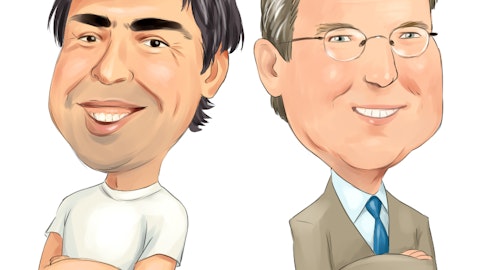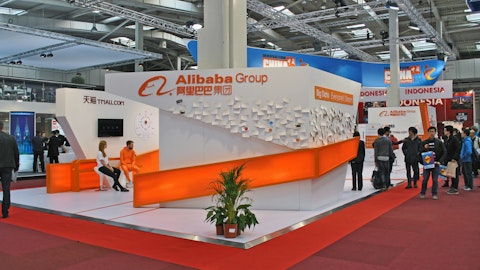We have been covering hedge funds for the last 8 years and noticed that for the most part financial journalists love to bash hedge funds. When the bull market is raging, they say hedge funds suck because they underperform the market. Now that there is a noticeable market correction going on and hedge funds are outperforming the market, guess what they are saying? Here is an excerpt from an FT article where they use recent weakness in Facebook Inc (FB), Alphabet Inc (GOOG), Amazon.com Inc (AMZN), and Alibaba Group Holding Limited (BABA) shares to bash hedge funds:
“Credit Suisse estimates that most long-short funds have lost between 5.5 per cent to 7.5 per cent this month, which would be the worst stretch since the financial crisis. “It’s been a messy month,” said Troy Gayeski, senior portfolio manager at SkyBridge, a fund-of-funds. “We’ve seen the crowded positions in the ‘hedge fund hotels’ get liquidated.” “Hedge fund hotels” are an industry nickname for companies that are particularly popular with hedge fund investors. This year, most of the hotels have been in the technology sector, such as Facebook, Alphabet, Amazon and Alibaba — all of which are down at least 10 per cent just this month. Long-short funds manage about $800bn, according to eVestment, making them the biggest part of the global hedge fund industry. The size of the long-short universe, coupled with the leverage that many players use to juice their returns, means that their woes have probably led to some forced liquidation of positions, fuelling the recent turmoil, analysts say.”
Basically, FT is claiming that equity hedge funds lost anywhere from 5.5% to 7.5% because they use leverage, invest in the same crowded stocks like Facebook Inc (FB), Alphabet Inc (GOOG), Amazon.com Inc (AMZN), and Alibaba Group Holding Limited (BABA), and dump their positions all at the same time. If they had contacted us we would have told them whether their assertion is really what is happening in the markets right now. Let’s take a look.
Before we begin, we want to share something we noticed. FT never mentions in this article that long-short equity hedge funds outperformed the market by 1.2 to 3.2 percentage points so far in October. This means half of the equity hedge funds outperformed the market by at least 3.2 percentage points. If you look closely I am pretty sure you can find a lot of hedge funds that actually delivered positive returns in October. Instead, FT lists a bunch of hedge funds that had large losses. For example, John Armitage’s hedge fund lost 7.3% so far in October according to FT.

Why did equity hedge funds beat the market by only 1 to 3 percentage points in October? Did they really lose a ton of money in hedge fund hotels? Pointing to Facebook Inc (FB), Alphabet Inc (GOOG), Amazon.com Inc (AMZN), and Alibaba Group Holding Limited (BABA) doesn’t prove anything. Sure, each of these stocks lost more than 10% but collectively they account for less than 4.5% weight in hedge funds’ portfolios.
Insider Monkey tracks the majority of equity hedge funds and reports the most popular stocks (aka hedge fund hotels) and the least popular stocks among hedge funds. The 100 most popular stocks actually account for 33% of hedge funds’ portfolios. So, if hedge fund hotels underperform the market by 3 percentage points, this will contribute to a 1 percentage point underperformance in hedge funds’ equity portfolios. Let’s take a look at what kind of returns hedge funds generated in the 100 most popular stocks.
We assumed that hedge funds didn’t make any changes to their positions since the end of June. We will find out their September 30th holdings on November 14th. Equity hedge funds had nearly $700 billion invested in these stocks. Our calculations showed that hedge fund hotels lost a total of 9.2% vs. 8.7% loss for the S&P 500 Index.
OK, hedge funds’ 100 most crowded positions actually underperformed the market by 0.5 percentage points and led to a 0.17 percentage point underperformance relative to the S&P 500 index. Most people consider this as noise but apparently this is big news for FT. While focusing on this noise, they missed the real story.
Hedge funds didn’t lose 5.5 to 7.5 percent in October because they were trampling over each other to sell their positions in hedge fund hotels. Hedge funds lost 5.5 to 7.5% in October because on average they are only 30-50% hedged. A hedge fund with net exposure of 70% will generate 70% of the market’s return plus/minus a few percentage points due to its stock picking skills.
Since S&P 500 Index lost 8.7% so far in October, it is normal for an average hedge fund to lose around 6.1% (70% of S&P 500’s 8.7% loss). Since we calculated that hedge funds’ most popular picks underperformed the market by 0.5 percentage points, this tells us that the majority of hedge funds’ October losses were due to their 50-70% net exposure. A small contributor to their October losses is their poor stock picking skills.
Another weakness in FT’s article is that they didn’t take into account hedge funds’ short positions, especially in Alibaba. It is true that Alibaba is the fifth popular stock among hedge funds, but there are even more hedge funds shorting the stocks. Hedge funds that are long Alibaba shares own 3.2% of the stock’s outstanding shares. On the other hand total short interest in the stock is more than 11%. If some hedge funds are losing money because of the declines in Alibaba shares, there are other hedge funds making even more money because of the decline.
A third weakness in FT’s “analysis” is that they assume S&P 500 Index’s return is equivalent to market return. Hedge funds not only invest in the S&P 500 stocks but also in the Russell 2000 stocks. Russell’s small-cap stocks actually lost 12.5% so far in October and hedge fund returns suffered as a result of that. Overall, 59.9% of hedge funds’ equity portfolios are invested in the biggest 500 stocks; 18.7% of their equity portfolios are invested in the next 500 biggest stocks; and 19% of their portfolios are allocated to the next 2000 stock which correspond to the Russell 2000 Index’s universe. Since these small-cap stocks underperformed the S&P 500 Index by nearly 4 percentage points, hedge funds’ allocation into the small-cap stocks probably costed them around 0.8 percentage points in underperformance.
We don’t use anecdotal evidence to publish sensational articles to make money. We conduct real research to uncover facts about hedge funds’ stock picking ability. Our research showed that when we identify the best performing hedge funds and invest in their consensus picks that aren’t targeted by short sellers, we can handily outperform the market. We launched an investment strategy using this methodology in May 2014. We have been sharing our quarterly stock picks in our newsletter since then in real time. These stocks outperformed the market by a cumulative 54 percentage points since its inception through the end of August (see the details here).
Basically, our 4 years of real-time testing supports our thesis that “hedge fund hotels” that are occupied by the best hedge funds beat the market by a large margin. Hedge fund industry got extremely big since 2008. The total value of hedge funds’ long equity positions is more than $2 trillion dollars. Collectively they generate very small alpha, but investors can still outperform the market by a large margin by investing in the best ideas of the best hedge fund managers.
Disclosure: none. This article was originally published on Insider Monkey.





